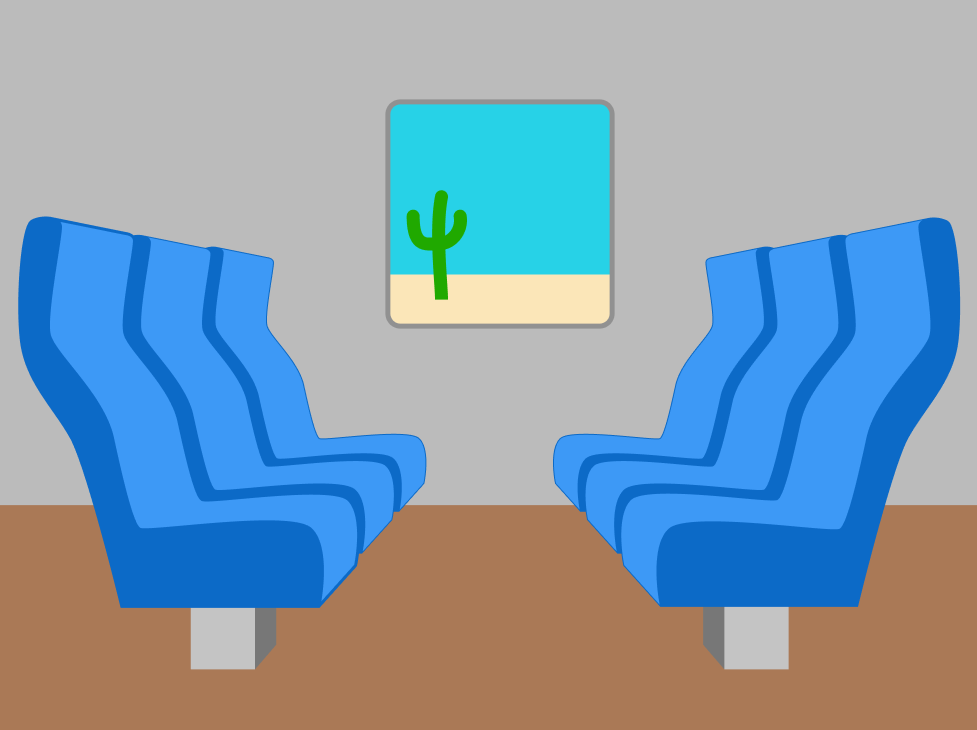Train Probability
Alex, Bob, and five friends are randomly assigned seats on a train. Six of them will sit in two rows of 3 that face each other, while the last person will have to stand. What is the probability that Alex and Bob are sitting directly across from each other?

This section requires Javascript.
You are seeing this because something didn't load right. We suggest you, (a) try
refreshing the page, (b) enabling javascript if it is disabled on your browser and,
finally, (c)
loading the
non-javascript version of this page
. We're sorry about the hassle.
1 solution
I think the solution can be such as...
The probability that Alex is getting any one seat is 6/7
Now the probability that Bob is also getting any one seat is 5/6 (as after Alex's sitting there will be 5 seats and 6 persons left)
Now the probability that Bob is sitting in front of the Alex seat is 1/5 (as after Alex's sitting there will be 5 seats left in which only one seat is placed in front of the Alex's seat)
So the total probability that Alex and Bob are sitting directly across from each other is (6/7).(5/6).(1/5)=1/7
What's wrong with this approach? There are 7! combinations and out of them 6 are required answer. So answer should be 6 / 7! ?
Log in to reply
I agree that you could frame the problem with 7 ! Permutations of seats. However, why do you say there are only 6 permutations which satisfy the condition?
Hint: First choose which opposite seats you want Alex/Bob to have. Then, choose which person has which seat. Then, choose where the other 5 sit.
Log in to reply
Got it! Thanks! PS - In that case answer will be 6 * 5! / 7! which is 1 / 7. :-)
can't you just simply say there are 6x7 ways the seating could be arranged and that Bob and Alex sitting across from each other would constitute 6 of those arrangements, so 6/42 = 1/7 ?
Log in to reply
@Matthew Agona – Yes, that's a great solution, and similar to the idea in the original solution posted by Gabe.
I was simply showing how to count the "good cases" if you use 7 ! as the total seatings of all 7 people, as Dushyant had used.
At first I had the exact same thought as you and thought that the question had to be bad. But after Eli asked "why do you say there are only 6 permutations which satisfy the condition?" it got me thinking. For every one of the six ways Alex and Bob can sit opposite each other, there are 5! ways the rest of the people can sit in the remaining seats. So we have (6 * 5!)/7!=6/(7 * 6)=1/7.
I don't agree with this answer, I think the answer is 6/7!
Log in to reply
There are more than 6 total seating arrangements that result in Allan and Bob sitting across from one another. If we look at this problem by counting all possible seating arrangements, there are indeed 7! possible outcomes. In regards to Allan and Bob, there are only 6 ways they could be seated to fulfill the requirement for them to sit across from one another; this is multiplied by the number of possible arrangements for the 5 remaining people, which is 5!. Thus, the answer is 6*5! / 7!, which equals 1/7.
The probability that Alex isn't standing is 7 6 . If Alex isn't standing, there is exactly one seat across from him and 6 positions left (the 5 seats and 1 standing), so the probability that Bob gets that seat given that Alex is seated is 6 1 .
Thus, the overall probability is 7 6 ⋅ 6 1 = 7 1 .